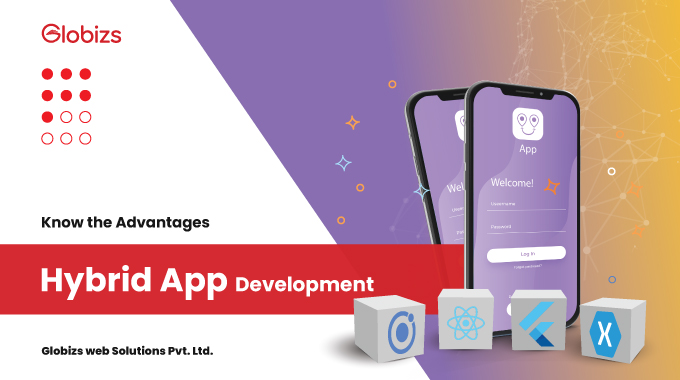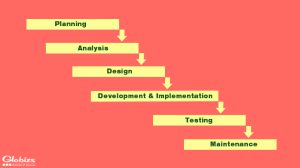As mobile devices continue to dominate the technology landscape, the demand for mobile applications has skyrocketed. Businesses, entrepreneurs, and individuals alike are all looking to leverage the benefits of mobile applications to reach their target audience and improve their business processes. Hybrid app development has emerged as a popular solution for creating mobile apps that can run on multiple platforms with a single codebase. In this article, we will explore the concept of hybrid app development, the types of tools used in this process, and the advantages and differences compared to native app development.
Hybrid app development is a method of creating mobile applications that can run on multiple platforms using a single codebase. A hybrid app combines the elements of both native and web apps, offering the best of both worlds. Hybrid apps are built using HTML, CSS, and JavaScript, and then wrapped in a native container that can be installed on any device. This container allows the app to access the native features of the device, such as the camera, GPS, and contacts.
To choose the best hybrid app development framework, you must ask yourself several questions, such as:
What is your level of expertise?: Different frameworks cater to different levels of experience, so it’s important to choose a framework that is appropriate for your skill level. If you’re a beginner, look for a framework with a low learning curve that is easy to set up.
What kind of hybrid app do you want to develop?: The main factors to consider here are cost, speed, performance, and compatibility, as they will determine how effectively you can develop the app you have in mind. The look and feel, as well as the user experience you want to provide, are also crucial components to consider when making your decision.
Does the framework meet your needs?: The most obvious consideration is whether the framework has the features that meet your specific hybrid app development requirements. Therefore, you should formulate a list of features you need in a framework before making a decision.
Who will be using your hybrid app?: Ultimately, the success of your app will depend on your target audience. Therefore, you should get a clear picture of your future users, how you can add value to their lives, and what your goals are for developing a hybrid app. This will help you select a framework that meets the needs of your target audience.
There are several types of tools used in hybrid app development, each with its own advantages and disadvantages. Some popular tools include:
Apache Cordova: This is an open-source platform that allows developers to build hybrid apps using HTML, CSS, and JavaScript. Cordova provides access to native device features through plugins, making it easy to build apps that run on multiple platforms.
Ionic: Ionic is a popular open-source framework for building hybrid apps. It is built on top of Cordova and provides additional features, such as pre-built UI components and a robust set of tools for app development.
Developer: Drifty
Initial Release: 2013
Written in: JavaScript
Backed Platforms:
iOS 8+
Android 4.1+
Popular Apps:
Sanvello – (Android app | iOS app)
JustWatch – (Android app | iOS app)
React Native: React Native is a framework developed by Facebook that allows developers to build native apps using JavaScript. React Native provides a bridge between the native components of the device and the JavaScript code, making it easy to build apps that feel and perform like native apps.
Developer: Facebook
Initial Release: 2015
Written in: JavaScript, Java, C++, Objective-C, and Python
Backed Platforms:
iOS 9+
Android 4.1+
Popular Apps:
UberEats – (Android app | iOS app)
Skype – (Android app | iOS app)
Flutter: Flutter is an open-source mobile app development framework created by Google that allows developers to build high-performance, visually appealing apps for both Android and iOS platforms. It uses the Dart programming language and provides a wide range of customizable widgets and tools that make it easy to build beautiful, responsive UIs. Flutter also supports hot reloading, which allows developers to see changes in their app code in real time, making the development process more efficient.
Developer: Google
Initial Release: 2017
Written in: Dart
Backed Platforms:
iOS 9+
Android 4.4+
Popular Apps:
Hamilton – (Android app | iOS app)
Alibaba – (Android app | iOS app)
Xamarin: Xamarin has versatile functionality with a wide range of tools for the developer. Xamarin is a framework used for cross-platform app development for iOS, Android, and Windows Phone in C# with Visual Studio.
Xamarin has been integrated into the .NET platform and lets you access the .NET ecosystem of packages and libraries. Remarkably, three of the amazing benefits of using Xamarin are continuous developer support, wide learning opportunities, and full technical backing by Microsoft.
Developer: Microsoft
Initial Release: 2011
Written in: C#
Backed Platforms:
iOS 9+
Android 4.4+
Popular Apps:
Alaska Airlines (Android app | iOS app)
Outback Steakhouse (Android app | iOS app)
Onsen UI: Onsen UI is an open-source hybrid app development framework that allows developers to create beautiful and responsive mobile apps for both Android and iOS platforms using HTML, CSS, and JavaScript. It provides a wide range of customizable UI components and themes that make it easy to build cross-platform apps with native look and feel. Onsen UI also supports a variety of popular front-end frameworks, such as Angular, React, and Vue, and provides integration with Angular and React ecosystems.
One of the key advantages of Onsen UI is its flexibility. It supports multiple platforms, browsers, and devices, making it easy to build apps that work well across a wide range of devices. Onsen UI also provides a variety of customization options, allowing developers to tailor the look and feel of their apps to their specific needs.
Developer: Monaca, Inc. / Asial Corporation
Initial Release: 2013
Written in: JavaScript
Backed Platforms:
iOS 9+
Android 4.4.4+
Popular Apps:
PopVox (Android | iOS)
Offcourse Golf (Android | iOS)
Hybrid app development offers several advantages compared to native app development. Some of these advantages include:
Cross-platform compatibility: Hybrid apps can run on multiple platforms, including iOS, Android, and Windows, with a single codebase. This makes it easy to develop and maintain apps for multiple platforms.
Faster development: Since hybrid apps use a single codebase, development time is significantly reduced, allowing businesses to get their apps to market faster.
Lower cost: Developing hybrid apps is generally less expensive than developing native apps, as it requires less time and resources.
Easy maintenance: Since hybrid apps use a single codebase, it is easy to update and maintain the app across multiple platforms.
There are also some differences between native and hybrid app development. Native apps are developed specifically for a single platform, such as iOS or Android, using platform-specific languages like Swift or Java. These apps offer a high level of performance and functionality, but require more time and resources to develop. Hybrid apps, on the other hand, are designed to run on multiple platforms using a single codebase. While they may not offer the same level of performance and functionality as native apps, they are faster to develop and easier to maintain.
| Key Feature | Native | Web | Hybrid |
|---|---|---|---|
| Development Language | Platform-specific | HTML, CSS, JavaScript | HTML, CSS, JavaScript |
| User Experience | Excellent | Can be good, but not as fluid as native | Can be good, but not as fluid as native |
| Performance | Excellent | Dependent on internet connectivity and browser used | Can be slower than native, but can still provide good performance |
| Access to Device Features | Full access | Limited access, dependent on the browser | Limited access, dependent on the framework used |
| Development Time | Longer, requires separate development for each platform | Shorter, requires only one codebase | Shorter, requires only one codebase |
| Cost | Higher, due to separate development for each platform | Lower, due to one codebase | Lower, due to one codebase |
| Offline Capability | Yes | Limited or none | Yes, to some extent |
| App Store Presence | Yes, on respective app stores | No, web apps are accessed through a browser | Yes, on respective app stores |
| Updates | Require separate updates for each platform | Can be updated easily, without the need for user intervention | Can be updated easily, without the need for user intervention |
Hybrid app development is an excellent solution for businesses and developers looking to build mobile apps that can run on multiple platforms. With a single codebase, hybrid apps offer cross-platform compatibility, faster development times, and lower costs compared to native app development. With the right tools and expertise, businesses can leverage hybrid app development to improve their mobile presence and reach their target audience.



